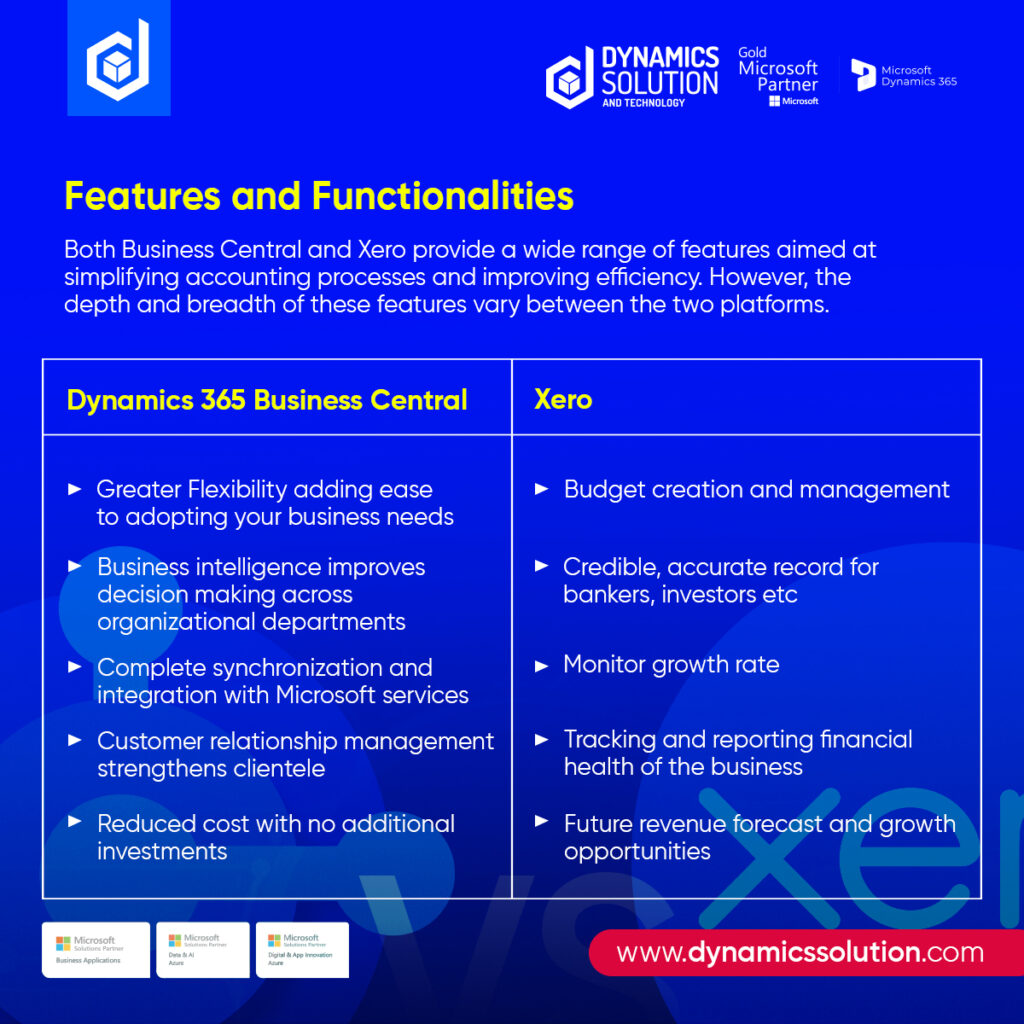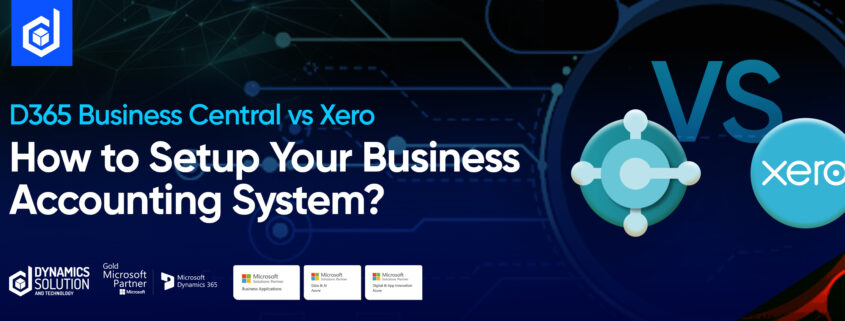In the modern business landscape, choosing the right accounting software is crucial for enhancing financial operations and achieving success. Two prominent contenders in this arena are Microsoft Dynamics Business Central and Xero. These platforms provide a range of features aimed at simplifying accounting tasks and offering insights into a company’s financial health. However, making the decision between them necessitates a careful evaluation of your business’s requirements, objectives, and financial resources.
In this detailed comparison, we’ll examine the distinct characteristics of Business Central and Xero to assist you in making a well-informed choice.
Understanding the Basics of Business Central and Xero
Microsoft Dynamics Business Central and Xero are cloud-based accounting solutions designed to meet the diverse needs of businesses across different industries. While both aim to simplify accounting tasks and support data-driven decision-making, they are tailored for distinct audiences and offer unique features.
Business Central, a key part of the Microsoft Dynamics 365 suite, targets small and medium-sized enterprises (SMEs) seeking a comprehensive business management solution. It offers various functionalities covering financial management, supply chain management, sales, customer service, and more.
On the other hand, Xero is designed for small and medium-sized businesses, prioritizing core accounting features like invoicing, expense tracking, bank reconciliation, and financial reporting.
Scalability and Flexibility
When evaluating accounting software, scalability becomes a critical consideration, particularly as businesses undergo growth and change. Business Central stands out in this regard, offering exceptional scalability and adaptability. Being part of the Dynamics 365 ecosystem, it boasts unparalleled scalability, seamlessly adjusting to the needs of businesses at any stage. Its modular design empowers users to tailor the platform to their specific requirements by adding or removing functionalities as needed.
Although Xero does offer scalability to a certain extent, it may be more suitable for smaller businesses with simpler accounting needs. As businesses expand and their accounting requirements become more complex, they might find that Business Central’s extensive features and customization capabilities better suit their evolving needs.

Business Central offers comprehensive financial management capabilities, including general ledger, accounts payable and receivable, budgeting, fixed assets, cash flow forecasting, and more. Additionally, it provides advanced inventory management, sales, and customer service functionalities, making it a holistic ERP solution suitable for managing all aspects of business operations.
In contrast, Xero focuses primarily on core accounting functions such as invoicing, expense tracking, bank reconciliation, and financial reporting. While it may lack the advanced features of Business Central, Xero’s simplicity and ease of use make it an attractive option for businesses that prioritize straightforward accounting solutions.
Integration with Other Systems
Seamless integration with other business applications is essential for maximizing efficiency and eliminating data silos. Both Business Central and Xero offer integration capabilities, but the extent and depth of these integrations differ.
Business Central, being part of the Dynamics 365 suite, seamlessly integrates with other Microsoft products such as Office 365, Power BI, and Dynamics 365 Customer Engagement. This provides a unified ecosystem for data sharing and collaboration, enabling users to access all relevant information from a single platform.
Similarly, Xero offers integration with various third-party applications, including popular CRM systems and e-commerce platforms. While these integrations enhance Xero’s functionality, they may not be as comprehensive as those provided within the Dynamics 365 ecosystem.
User Interface and Ease of Use
The user experience is pivotal in determining the adoption rate and effectiveness of software. Both Business Central and Xero prioritize user-friendly interfaces aimed at simplifying accounting processes and minimizing the learning curve for users.
Business Central features a modern and intuitive interface that users familiar with the Microsoft ecosystem will find easy to navigate. Its seamless integration with other Microsoft products allows for a smooth transition and enables users to harness its full potential without requiring extensive training.
Likewise, Xero offers a user-friendly interface that emphasizes simplicity and ease of use. Its straightforward layout and intuitive navigation make it well-suited for businesses prioritizing efficiency and user-friendliness in their accounting software.
Reporting and Analytics
Accurate reporting and analytics are essential for making informed business decisions and driving growth. Business Central and Xero provide robust reporting capabilities, but the depth and sophistication of these features vary.
Business Central offers comprehensive reporting and analytics capabilities, allowing users to create custom reports, analyze financial data, and gain valuable insights into their business performance. With integration into Power BI, users can build interactive dashboards for a comprehensive view of their financial data.
While Xero offers standard financial reports, it may lack the depth of reporting provided by Business Central. However, it does offer a range of third-party reporting integrations that can extend its reporting capabilities.
What Suits You? Making the Right Choice
Both Microsoft Dynamics Business Central and Xero offer excellent accounting software solutions, each with its own strengths and capabilities. Your decision between the two should be based on your business’s specific needs, size, industry, and long-term growth objectives.
Business Central stands out as an ideal choice for businesses in search of a comprehensive business management solution. With its advanced features, scalability, and seamless integration with other Microsoft products, it caters well to the needs of small to medium-sized enterprises aiming to streamline operations and foster growth.
On the other hand, Xero caters to the needs of small to medium-sized businesses that value simplicity, user-friendliness, and essential accounting features. While it may lack the extensive range of advanced functionalities found in Business Central, Xero stands out for its intuitive interface and cost-effectiveness, making it a preferred choice for businesses in search of a straightforward yet efficient accounting solution.
Whether you are contemplating a green-field implementation of Dynamics 365 Business Central or Xero, Dynamics Solution and Technology will help you all the way from consulting to implementing to 24/7 support.
Our technical consultants are well-versed in analyzing your business needs and are adept at employing the most innovative technologies that will be custom configured to meet your needs. As Microsoft’s Gold Partner, we have been digitally transforming businesses all over the Gulf and MENA regions and equipping them with the right tools to survive in today’s dynamic business landscape. Contact us today for a personalized demo on how we can be your Business Central implementation partners.







